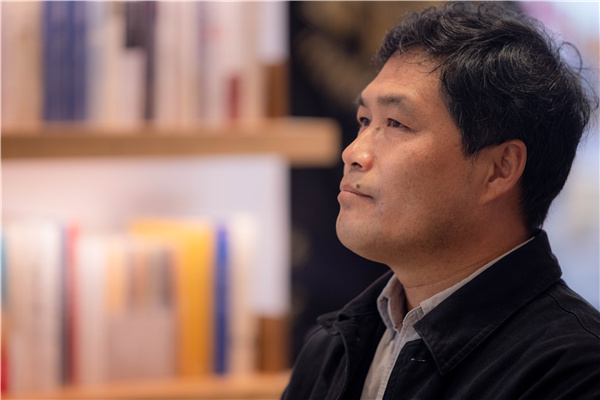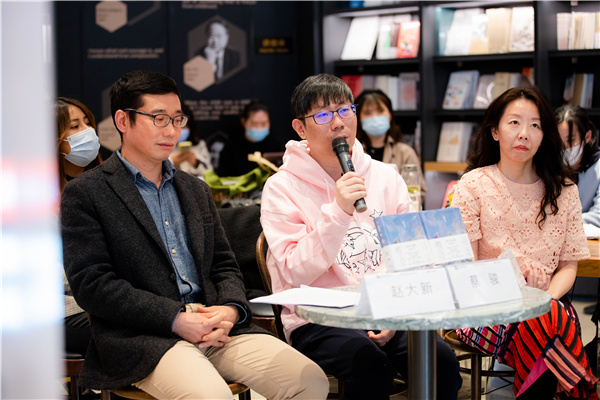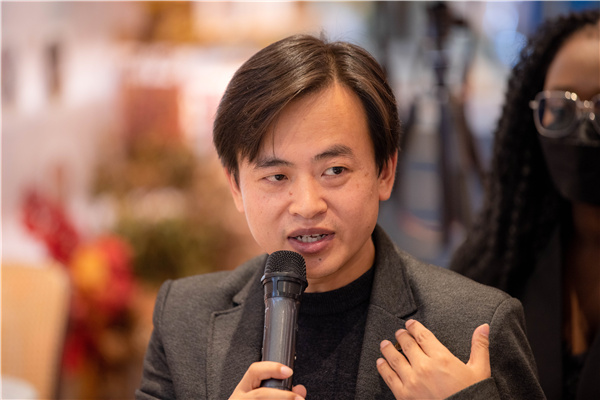Seminar facilitates dialogue among writers, translators
chinadaily.com.cn | Updated: 2021-11-10 17:03

Children's writer Xue Tao shared with online and offline Sinologists his recent writing experience. He has immersed himself in the harsh life of a mountain village somewhere in China. There he reads and writes quietly. Xue said: "The vitality in a writer's work comes from the life of the writer. A writer's work has as many lives as the writer gives it. If a writer gave all his life up to his works, he would lose his life, but his works would be immortal. Of course, the premise is this writer must be talented. Otherwise, even if he had 10 lives to give, his works would still be lifeless." Xue's zeal for literary creation and his unique insights have left a deep impression on event participants.

When talking about his work Spring Night at the event, writer Cai Jun pointed out history may change, but living people are like a flowing river and can preserve all the memories of their past. According to him, there will undoubtedly be distortions, exaggerations, and even omissions in memories. But no matter what, this kind of preservation and change constitutes the basis of literature. He said: "Many excellent literary works have represented and retold history, presenting a different aspect through the representation of history. The process is the recreation of reality through fiction, and it is a literary interpretation of reality." He said he believes not only must Chinese culture go out to the world, but Chinese stories must do the same. They must face the problems all literary works in the world face: the relationship between reality and fiction. Spring Night is the result of the interaction between reality and fantasy, he added.

Writer Wang Weilian explained the sense of reality embodied in his latest collection of novels: "I often feel many of our notions of the future are changing our present and even future. Perhaps only literature can express this paradox, this complicated phenomenon. I'm writing the future, but what I want to emphasize is a more complex sense of reality capable of striking a deep chord in the hearts of the reader. Our past shapes not only our reality but also our present and the future." At the event, an overseas Sinologist asked Wang if artificial intelligence can replace an artist's creation and if he is worried there may be writing robots in the future who can replace writers. Wang responded the biggest problem with artificial intelligence compared with writers is it doesn't understand or enjoy writing itself. He disclosed he is currently creating a science-fiction novel, in which he envisions the ultimate form of literature. It involves the topic of how human beings should face if writers lose their jobs.
























